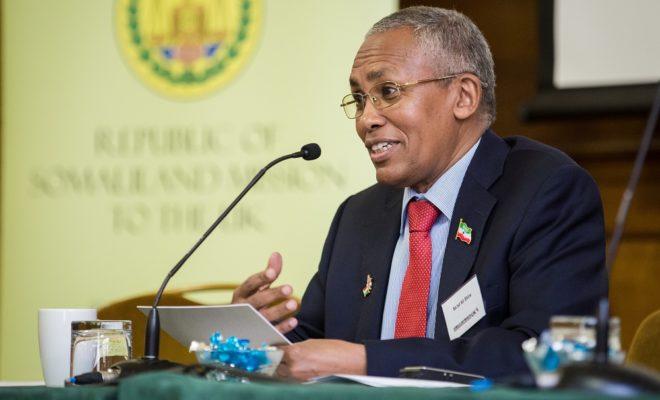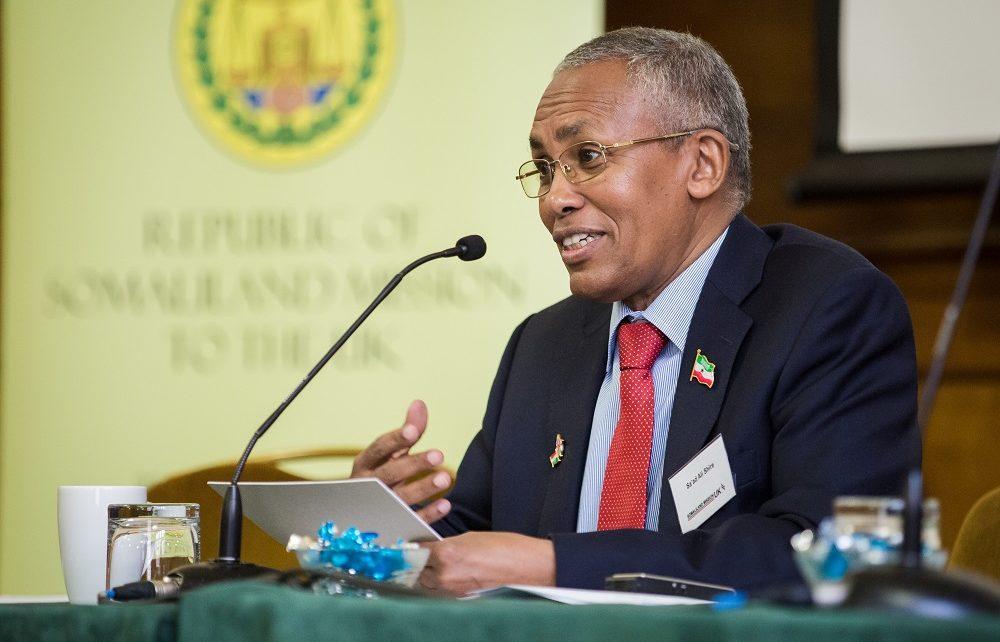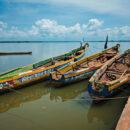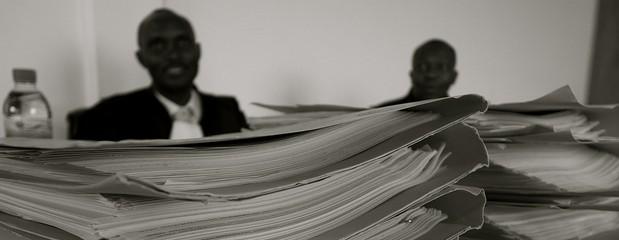“Otherwise we’ll have to go to war”: Somaliland demands recognition 26 years on

Somaliland’s Foreign Minister talks about the self-declared state’s struggle for recognition, domestic successes, and strategies towards Somalia.

Dr Saad Ali Shire, Somaliland’s Minister for Foreign Affairs and International Cooperation/
Shortly after the collapse of the brutal Siad Barre regime in 1991, Somaliland unilaterally declared independence from Somalia. It reinstated the borders that had existed when it was briefly a sovereign state in 1960, and its government called on the world to recognise it as a newly sovereign country.
No one did.
In the 26 years since, Somaliland has continued to call for recognition. In the meantime, it has succeeded in many of the ways the rest of Somalia has failed. It has maintained relative stability. It has held elections. And it has developed on various economic and social measures.
And yet, still no one has heeded its calls to be accepted as a sovereign nation.
African Arguments caught up with Dr Saad Ali Shire, Minister for Foreign Affairs and International Cooperation, to ask him about the campaign for recognition, the challenges facing Somaliland, and the government’s relations with Somalia.
[International recognition for Somaliland will boost prosperity in the Horn of Africa]
You’ve been making the same argument for recognition for 26 years. Yet still no country recognises you. Are you going to keep making the same case or do you have a change of plan?
Somalia and Somaliland were two independent states that united on 1 July 1960, even though legally the process was questionable. On 26 June 1960, the sovereignty of Britain over Somaliland had ceased and we assumed our own sovereignty. It was only compromised when we joined Somalia.
We were together for 30 years, under the democratic republic from 1960 to 1969 then under military dictatorship until 1991. In both cases, the union did not work for Somaliland and was very destructive towards the end. We asked why we should be part of a system that only harms us.
It’s been 26 years since we decided to leave the union. We’ve not been recognised as yet, but a lot has changed. Somaliland of 2017 is different to Somaliland of 1991. We’ve rebuilt the country and economy. We’ve had five one-man-one-vote elections. We have stability and have made a lot of social progress. We have 30 universities when we had none before and 1,000 primary schools.
Politically, Somaliland is much more credible. In the early 90s when we came to the UK, we’d meet with junior officers. Now I meet with the minister.
I think the world should be ashamed of itself for not recognising Somaliland. We’re denied our rights by being denied sovereignty. It’s a humanitarian case in a way. What is there to lose? There’s no country in the world that can say we don’t like Somaliland because we’re causing them damage. On the contrary. Full recognition can only help the international community deal with pressing challenges such as terrorism and piracy.
The drought in Somaliland is another challenge. Tens of thousands have been displaced to camps where some say they are living in appalling conditions with no facilities, no security, and that the government is not doing anything to help them.
I think the government is trying its best, and not just the government but the community. It’s a miracle we survive. It’s a miracle we lost only a few lives in this drought. Our people are very generous and supportive, and the government as well.
But of course we could have done with the support of the international community. I must be fair; we do get assistance, though it really came very very late. And even then it is not enough.
Our economy is pastoral, our main resource is livestock and we lost it. It will probably take 20 years to recover, and that’s if we don’t have another severe drought and we’re assisted adequately.
Somaliland suffers from very high unemployment, leading lots of young people to take perilous journeys to Europe or find work in Mogadishu. What are you doing to create jobs?
The government is trying to create the right environment for the private sector to come in and invest. Of course we’re constrained by lack of recognition. We believe we have loads of opportunities for investment and there’s no lack of interest. In the capital Hargeisa, there are always all sorts of people from all around the world: Europeans, Asians, Americans, even Russians. But unfortunately lack of recognition is putting the brakes on that.
We think we can improve prospects for employment and tackle human trafficking activities, which lure a lot of young people to Europe, by creating prosperity back home – if we’re recognised.
You recently signed a big deal with Emirati firm DP World to expand and manage Berbera port. Lasting for 30 years and with a $442 million investment, it could be transformative. How will you ensure ordinary citizens benefit?
It consists of two components. One is expansion and management of the port. The other is the free zone.
The port will be extended so there will be plenty of construction jobs. Once the port is extended and traffic increases, there will be opportunities for extending services and transport that will create more jobs within the port and in activities related to the port.
We also believe the free zone will create a lot of employment. In the Jebel Ali Free Zone in the United Arab Emirates, they have 7-8,000 companies attached to the port. I understand the state gets about 25% of its income from the port and free zone. We’re not looking for thousands but a few hundred, or one hundred, companies. That would be a lot of jobs.
Free zones have lower tax and labour regulations. And in Berbera port, there are already reports of wages being cut and nearly 300 people being laid off since the deal. What mechanisms will be in place to ensure jobs are reasonably paid, conditions are adequate, and that locals actually benefit?
Free zones are considered as foreign countries so they are not taxed at all. The main purpose is not tax but job creation.
In the deal with DP World, they are supposed to not lay off anybody on the payroll. In fact they did hire all the people on the payroll so that report is not true. As far as pay is concerned, most people are being paid twice, maybe three times, what they were being paid. They’re very happy.
Of course in every institution there are people with vested interests and winners and losers in every change. There will be some losers who will complain. But overall it’s been a really good deal for the workers.
Does the recent election of Mohamed Abdullahi Mohamed Farmaajo as Somalia’s new president change anything in terms of your relationship?
We hope so. We started talks with Somalia in 2012. In five years, we haven’t got very far on anything. The new president says he is committed to the talks, the international community is very supportive, and we are also committed.
We hope we will be able to settle our differences around the table peacefully, because otherwise we’ll have to go to war, and that will be disruptive and destructive for both of us and for the region.
What does Somaliland want to get from the negotiations, and what would it take to go to war?
We have to have a mutual consent to recognise each other as independent African states. That’s our aim and we would like to collaborate on the many things we can do together better. Ensuring security from disease, terrorism and extremism; we can collaborate on the economic arena; droughts and epidemics don’t know boundaries. There are many things we can do together positively while recognising each other’s sovereignty.
Can you expand on your comment about going to war, which many may find alarming?
I think that’s the only other alternative. They are claiming Somaliland as part of Somalia. And if they want to exert what they may call their right to rule Somaliland from Mogadishu, then we will fight them and you will have a war. We will interfere in their internal affairs if they interfere in our internal affairs, so we will have a sort of hostile relationship and a hostile relationship is not good for us, for them, or the region.
Somaliland’s presidential elections are scheduled for later this year in which you will get a new president. What’s at stake in them and what’s your advice to voters?
I’m hoping we will have again a peaceful free and fair election. I think that will give confidence to our people and the international community. The important thing is that citizens exercise their right and that they vote so that the new government will be legitimate and will have the consent of the people.






